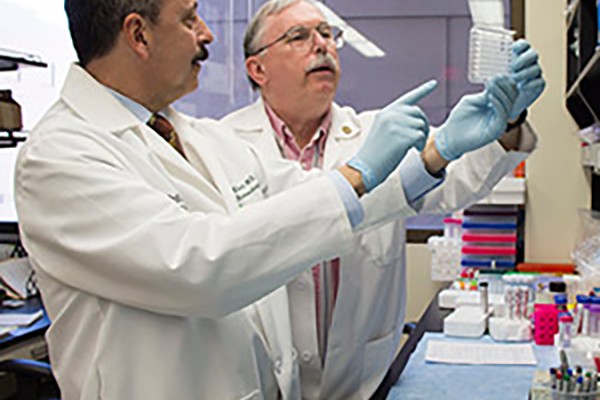Kidney cancer detected early with urine test
Finding kidney cancer early has been among the disease’s greatest challenges. Now, researchers at Washington University School of Medicine in St. Louis have developed a noninvasive method to screen for kidney cancer that involves measuring the presence of proteins in the urine.
Folic acid may reduce some childhood cancers
Folic acid fortification of foods may reduce the incidence of the most common type of kidney cancer and a type of brain tumors in children, finds a new study by Kimberly J. Johnson, PhD, assistant professor at the Brown School at Washington University in St. Louis, and Amy Linabery, PhD, postdoctoral fellow at the University of Minnesota. Incidence reductions were found for Wilms’ tumor, a type of kidney cancer, and primitive neuroectodermal tumors (PNET), a type of brain cancer.
Bear Cub grants awarded
Washington University in St. Louis has awarded five Bear Cub fund grants totaling $190,000 to support innovative research that has shown commercial potential. Jerry Morrissey (right), PhD, received one of the grants to develop rapid tests for the early development of kidney cancer.
Going where the science takes you
Evan Kharasch, MD, PhD, has been involved in scientific research since high school. An anesthesiologist by training, he is the Russell D. and Mary B. Shelden Professor of Anesthesiology and professor of biochemistry and molecular biophysics. Last spring, he also was appointed vice chancellor for research for the university.
Kibel named Holekamp Family Chair
Adam Kibel has been named the Holekamp Family Chair in Urology at Barnes-Jewish Hospital and Washington University School of Medicine. The endowed chair was established by Bill and Kerry Holekamp and the Holekamp Family Foundation through the Barnes-Jewish Hospital Foundation.
Urine test for kidney cancer a step closer to development
A team of researchers at Washington University School of Medicine in St. Louis has identified a pair of proteins excreted in the urine that could lead to earlier and more accurate diagnosis of kidney cancer. The research is the first to identify proteins in urine that appear to accurately reveal the presence of about 90 percent of all kidney cancers.
Figenshau named Taylor and Clayman chair
R. Sherburne Figenshau, M.D., has been named the Taylor Family and Ralph V. Clayman, M.D., Minimally Invasive Urology Chair at Barnes-Jewish Hospital and Washington University School of Medicine in St. Louis.

